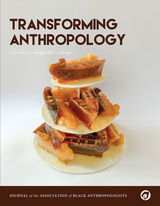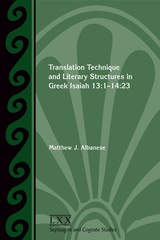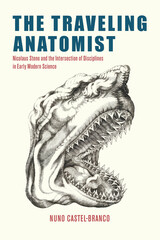
This generous omnium-gatherum brings together all the writings William James published that have not appeared in previous volumes of this definitive edition of his works. Miscellaneous and diverse though the pieces are, they are unified by James's style and personality, which shine through even the slightest of them.
The volume includes 25 essays, 44 letters to the editor commenting on sundry topics, and 113 reviews of a wide range of works in English, French, German, and Italian. Twenty-three of the items are not recorded in any bibliography of James's writings. Two of the new discoveries are of particular interest: dating from 1865, when he was still a medical student, they are James's earliest known publications and give his first published views on Darwinian biology, which was to affect profoundly his own work in philosophy and psychology. Among his reviews are one of "Ueber den psychischen Mechanismus hysterischer Phäomene," by Josef Breuer and Sigmund Freud, published a year after the first appearance of that historically famous essay, and showing the breadth of James's interests, reviews of George Santayana's Sense of Beauty (1897) and Bernard Berenson's Florentine Painters of the Renaissance (1896).

Essays in Philosophy brings together twenty-one essays, reviews, and occasional pieces published by James between 1876 and 1910. They range in subject from a concern with the teaching of philosophy and appraisals of philosophers to analyses of important problems.
Several of the essays, like "The Sentiment of Rationality" and "The Knowing of Things Together," are of particular significance in the development of the views of James's later works. All of them, as John McDermott says in his Introduction, are in a style that is "engaging and personal...witty, acerbic, compassionate, and polemical." Whether he is writing an article for the Nation of a definition of "Experience" for Baldwin's Dictionary or "The Mad Absolute" for the Journal of Philosophy, James is always unmistakably himself, and always readable.


This final volume of The Works of William James provides a full record of James's teaching career at Harvard from 1872 to 1907. It includes extensive working notes for lectures in more than twenty courses. Some of the notes contain summary statements of views of James's that have never been published before, such as his treatment of the question of proof in ethics, in the only course he ever taught in that subject; others reflect contemporary controversies in philosophy, notably the famous debate on Idealism and the nature of the Absolute; still others illuminate early stages of James's thinking on crucial problems in what was to become his philosophy of radical empiricism. Often the notes yield information about his sources that is not to be found in the published writings. Because James's teaching was so closely involved with the development of his thought, this unpublished material adds a new dimension to our understanding of his philosophy.
James's public lectures gained him world renown, and most of them were subsequently published. There are, however, several sets of notes for and drafts of important lectures that he never wrote out for publication; these are included in the present volume. Among them are his two series of lectures in 1878 on the physiology of the brain and its relation to the mind; the Lowell Lectures of 1896 on exceptional mental states; and the lectures of 1902 on intellect and feeling in religions, which were designed to supplement Varieties of Religious Experience and were intended to be his last word on the psychology of religion.

In Pragmatism, William James attacked the transcendental, rationalist tradition in philosophy and tried to clear the ground for the doctrine he called radical empiricism. The book caused an uproar; it was greeted with praise, hostility, and ridicule. Determined to clarify the pragmatic conception of truth, James collected nine essays he had written on this subject before he wrote Pragmatism and six written later in response to criticisms of that volume by Bertrand Russell and others. He published the collection under the title “The Meaning of Truth” in 1909, the year before his death.
The Meaning of Truth shows James at his best—clear and readable as always, and full of verve and good humor. Intent upon making difficult ideas clear, he is also forceful in his effort to make them prevail.

In May 1908 William James, a gifted and popular lecturer, delivered a series of eight Hibbert Lectures at Manchester College, Oxford, on “The Present Situation in Philosophy.” These were published a year later as A Pluralistic Universe.
During the preceding decade James, as he struggled with deep conflicts within his own philosophic development, had become increasingly preoccupied with epistemological and metaphysical issues. He saw serious inadequacies in the forms of absolute and monistic idealism dominant in England and the United States, and he used the lectures to attack the specific form that “vicious intellectualism” had taken. In A Pluralistic Universe James captures a new philosophic vision, at once intimate and realistic. He shares with his readers a view of the universe that is fresh, active, and novel. The message conveyed is as relevant today as it was in his time.
This is the fourth volume of The Works of William James in an authoritative edition sponsored by the American Council of Learned Societies. Prepared according to modern standards of textual scholarship, this series utilizes all available published and unpublished materials; its texts have been awarded the seal of approval of the Center for Editions of American Authors. Frederick Burkhardt is General Editor; Fredson Bowers, Textual Editor; Ignas K. Skrupskelis, Associate Editor.

"It is absolutely the only philosophy with no humbug in it," an exhilarated William James wrote to a friend early in 1907. And later that year, after finishing the proofs of his "little book," he wrote to his brother Henry: "I shouldn't be surprised if ten years hence it should be rated as 'epoch-making,' for of the definitive triumph of that general way of thinking I can entertain no doubt whatever—I believe it to be something quite like the protestant reformation."
Both the acclaim and outcry that greeted Pragmatism: A New Name for Some Old Ways of Thinking helped to affirm James's conviction. For it was in Pragmatism that he confronted older philosophic methods with the "pragmatic" method, demanding that ideas be tested by their relation to life and their effects in experience. James's reasoning and conclusions in Pragmatism have exerted a profound influence on philosophy in this century, and the book remains a landmark.

READERS
Browse our collection.
PUBLISHERS
See BiblioVault's publisher services.
STUDENT SERVICES
Files for college accessibility offices.
UChicago Accessibility Resources
home | accessibility | search | about | contact us
BiblioVault ® 2001 - 2025
The University of Chicago Press









